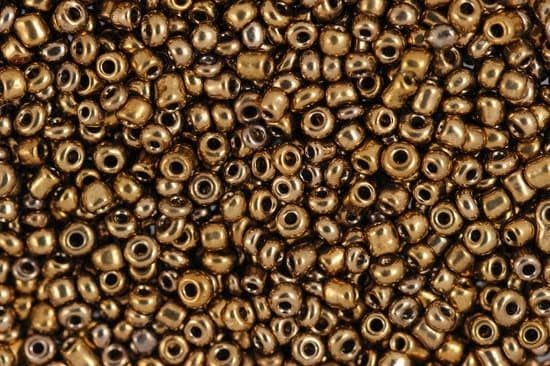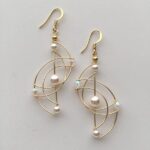When it comes to cleaning jewelry, many people ponder the question of what alcohol cleans jewelry. While there are a number of liquor and spirits available, for the best results rubbing alcohol or vodka would be the best bet as they contain higher levels of alcohol and will work to kill germs and bacteria that are living on the piece.
The sanitary effects of rubbing alcohol along with its ability to evaporate fast make it an ideal choice for cleaning metal, gemstones, plastic beads, costume jewelry and more.
To make sure that all dirt, oils, soap residue and other debris is removed before any type of polishing takes place, fill a container with appropriate levels of rubbing alcohol and submerge the jewelry piece in the mixture. Allow it to sit for several minutes then use an old toothbrush or soft-bristle brush to gently scrub away residue. Rinse off the piece with water then let it air dry.
Once dry, you can begin wiping down the item with a cloth until all remaining spots have been removed. There may also be instances when stubborn dirt might require additional cleaning – if this is true you can opt for soaking it in a diluted solution of bleach and cold water as another way on how to clean jewelry with alcohol safely and effectively.
With each reuse it’s important that jewelry gets cleaned in order to remain sparkly and bright. To ensure maximum efficiency when using alcohol to clean jewelry – always be sure keep pieces away from open flames throughout this process due to their flammable nature as well as maintain good ventilation to avoid inhaling any vapors associated with alcoholic ingredients.
It’s also important that specific types of items such as pearls should not be exposed to any kind of liquids so one should ensure all protective measures are taken prior getting started with this task at hand if other pieces types are present.
Pros and Cons
Many people use alcohol to clean jewelry, due to its antibacterial properties and ability to dissolve dirt and grease. This makes it a popular option with jewelry cleaning professionals for a variety of types of jewelry cleaning needs. While there are many advantages to using alcohol as your choice of cleanser, there are also some potential drawbacks you should consider.
Pros
- Alcohol is great at dissolving bacteria on the surface of jewelry such as oil or dust.
- Alcohol does not leave behind any residue after use.
- Alcohol is capable of removing tarnish from alloys, such as silver that oxidizes when exposed to air.
- It can also be used on gemstones like diamonds, emeralds, rubies, or sapphires.
Cons
- Alcohol can sometimes be too strong and damage some types of softer gems like opal or turquoise.
- It can strip away the layer of oxidation that protects softer metals like copper or brass
- Also, if not used correctly it can cause the enamel to crack or chip off when cleaning vintage jewelry.
- Doing so without proper knowledge may lead to corrosion problems in antique pieces.
- It is also important to remember that certain dyes and fabrics may discolor when cleaning with alcohol.
Safety Precautions
When it comes to cleaning jewelry, many people will turn to alcohol as the go-to cleaner. This is because rubbing alcohol can effectively dissolve grime and dirt from jewelry and metals. However, there are some safety precautions that should be taken when cleaning with alcohol. It is important to understand these precautions in order to clean safely and effectively without damaging your jewelry.
Safety Guidelines & Warnings
- Always use a clean soft cloth when wiping down jewelry that has been in contact with alcohol.
- If you do not have a cloth available, make sure to thoroughly rinse the jewelry off immediately after cleaning with alcohol.
- Make sure that you use a non-abrasive bottle or container for storage and transfer of the rubbing alcohol.
- Do not dip the entire piece of jewelry into the cleaning solution – only apply directly onto the part that needs to be cleaned.
- For diamond jewelry, ensure that you use rubbing alcohol with no less than 70% ethanol content.
The one important factor to consider when using rubbing alcohol for cleaning jewelry is whether or not the type of metal used in production is compatible with the solution. Different metals should not interact directly with alcohol as this may cause discoloration or tarnishing. Always check what materials have been used in constructing the piece before exposing it to any liquids such as alcohol.
Additionally, specialty items like pearls or jewels should never be exposed to rubbing alcohol as this may cause fading or discoloration of their luster over time. Therefore, it’s important to never assume all pieces of jewelry can handle cleaning using rubbing alcohol even if they have been constructed from similar materials such as gold or silver.
Know what kind of metal was used before exposing your jewelry item directly to any type of liquid cleaner, including rubbing alcohol or specialized solutions found at most stores which cater specifically towards jewelry needs and requirements.
Alternatives to Alcohol
Jewelry can accumulate dirt, oil from the skin, and other impurities over time that detract from its sparkle and shine. Although alcohol has long been seen as a go-to cleaner for jewelry, many people are beginning to search for alternative solutions that do not include this chemical.
One excellent solution is to create a homemade baking soda solution to clean your jewelry. The basic recipe calls for two teaspoons of baking soda mixed with just enough water to make it into a paste.
This paste can be rubbed on your jewelry or applied with a toothbrush in order to scrub off any buildup and dirt. Baking soda is also mild enough that it will not damage most metals or gemstones, making it an ideal choice for cleaning sensitive jewelry.
No matter which cleaning method you decide to use, it is always important to remember that gentle cleaning provides the best results when dealing with delicate metals and gemstones. Steam cleaning is another great option if you are looking for a gentle but effective method of removing dirt and oils from your jewelry.
Using your own steam cleaner at home is both safe and affordable, while also providing great results without placing too much stress on your pieces. You can also take advantage of professional steam cleaning services at most reputable jewelers if more in-depth cleaning is needed.
Finally, ultrasonic cleaners are becoming increasingly popular due to their effectiveness in quickly removing dirt from tight crevices and hard-to-reach places on jewelry that would otherwise be very difficult to clean by hand. These machines generate soundwaves that cause tiny bubbles of soap and water to expand rapidly inside them; these bubbles effectively dislodge debris from all areas of the jewelry which then washes away easily.
Ultrasonic cleaners work well on most metals, but they should not be used on porous stones such as turquoise or pearls as they may be damaged by the process.
Aftercare Tips
When dealing with jewelry items after they have been cleaned with alcohol, it is important to take the necessary precautions in order to ensure that no damage occurs. Jewelry that has alcoholic residue left behind can tarnish or corrode over time if not properly cared for post-cleaning process.
Drying The Jewelry
The first step after cleaning any jewelry item is to dry the item completely. This helps to remove any alcohol residue and prevent corrosion from happening. To dry the jewelry, make sure to lay out a cotton cloth or a paper towel and use an old toothbrush (or a similar tool) to help get excess liquids off the piece before allowing it to air dry.
Polishing The Jewelry
Once the jewelry has been dried completed, it is important to polish it as well-this helps to give it back its shine and luster. A soft polishing cloth works great and be careful not use polishes with strong chemicals as these can damage the jewelry over time.
Sealing The Jewelry
Finally, after drying and polishing the jewelry, it is highly advisable to seal it with a sealant or coating of some sort-such as clear nail polish or varnish which are both inexpensive solutions that protect against oxidation and discoloration. Sealing also keeps dirt, sweat, smoke, lotions etc., from being absorbed into your jewelry pieces during wear. It’s best practice to reseal your jewelry every so often in order maintain its condition over time.
Frequently Asked Questions
One of the most common questions people ask is whether alcohol can be used to clean jewelry. The answer is yes – depending on the type of jewelry. Some jewelry is too delicate or contains material that won’t react well to an alcohol-based cleaning agent, so it’s important to research your specific item before attempting any sort of cleaning.
One of the biggest advantages to using alcohol to clean jewelry is that it can easily dissolve oils and dirt without damaging the metal or stone. For example, silver jewelry will benefit from an occasional wipe down with a quality distilled white vinegar – it disinfects and polishes all in one shot. Alcohol also cleans by evaporating quickly, meaning there are no chemical residues left behind that could potentially harm your items.
Now, if you’re wondering what type of alcohol you should use for cleaning jewelry, denatured ethanol or Isopropyl Alcohol (IPA) are both acceptable options. Ethanol is a strong solvent that cuts through grime with ease so make sure you handle it with caution and wear protective gloves while doing so.
IPA has a lower evaporation rate than ethanol which makes it ideal for delicate pieces like pearls and gemstones since they won’t be damaged from extreme heat while being cleaned.
Overall, alcohol can be great for cleaning jewelry but make sure you do your research first since certain pieces could easily be damaged if not handled properly. Take extra precautions when working with solvents like denatured ethanols and opt for Isopropyl Alcohol if dealing with more delicate materials. With these tips in mind, you should have no problem keeping your beloved items sparkling clean for years to come.

Welcome to my jewelry blog! My name is Sarah and I am the owner of this blog.
I love making jewelry and sharing my creations with others.
So whether you’re someone who loves wearing jewelry yourself or simply enjoys learning about it, be sure to check out my blog for insightful posts on everything related to this exciting topic!





